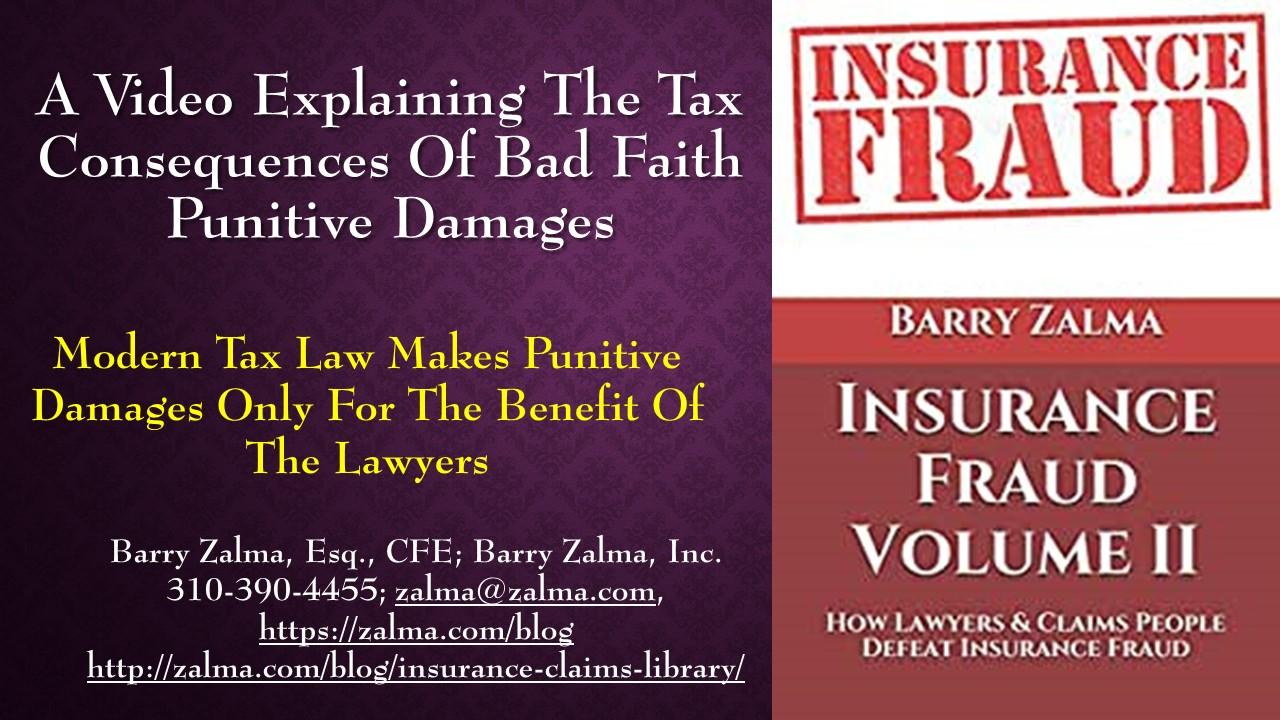-
News Feed
- EXPLORE
-
Pages
-
Groups
-
Events
-
Blogs
-
Marketplace
-
Offers
-
Jobs
-
Developers
A Video Explaining the Tax Consequences of Receiving Punitive Damages

Modern Tax Law Makes Punitive Damages Only For The Benefit Of The Lawyers
Read the full article at https://www.linkedin.com/pulse/video-explaining-tax-consequences-bad-faith-punitive-barry and see the full video at https://youtu.be/v8v8h0UBbWg and at https://zalma.com/blog plus more than 3500 posts.
In Gary L. Greenberg and Irene Greenberg v. Commissioner of Internal Revenue, No. 25420-07. (U.S.T.C. 01/24/2011) the United States Tax Court dealt with a recipient of insurance bad faith punitive damages who tried to avoid tax on the award. As a result, the recipient of the award of punitive damages for the bad faith conduct of their insurer, resulted in a major tax consequence and not the windfall the plaintiffs thought they received. Because the Greenbergs could not convince the Tax Court of their position the Court not only slapped the Greenbergs down in affirming a tax deficiency of over $1 million, but further sanctioned them with an accuracy-related penalty, because the taxpayers had neither substantial authority, nor reasonable cause underlying their posture on the damage award.
The Tax Court noted that the definition of gross income broadly encompasses any addition to a taxpayer’s wealth.
We are 100% funded for October.
Thanks to everyone who helped out. 🥰
Xephula monthly operating expenses for 2024 - Server: $143/month - Backup Software: $6/month - Object Storage: $6/month - SMTP Service: $10/month - Stripe Processing Fees: ~$10/month - Total: $175/month
- Art
- Causes
- Crafts
- Crime
- Dance
- Drinks
- Film
- Finance
- Fitness
- Food
- Games
- Gardening
- Health
- Home
- Literature
- Music
- Networking
- Paranormal
- Other
- Politics
- History
- News
- Party
- Science
- Religion
- Shopping
- Sports
- SyFy
- Politically Incorrect
- Philosophy
- Theater
- Technology
- Wellness



